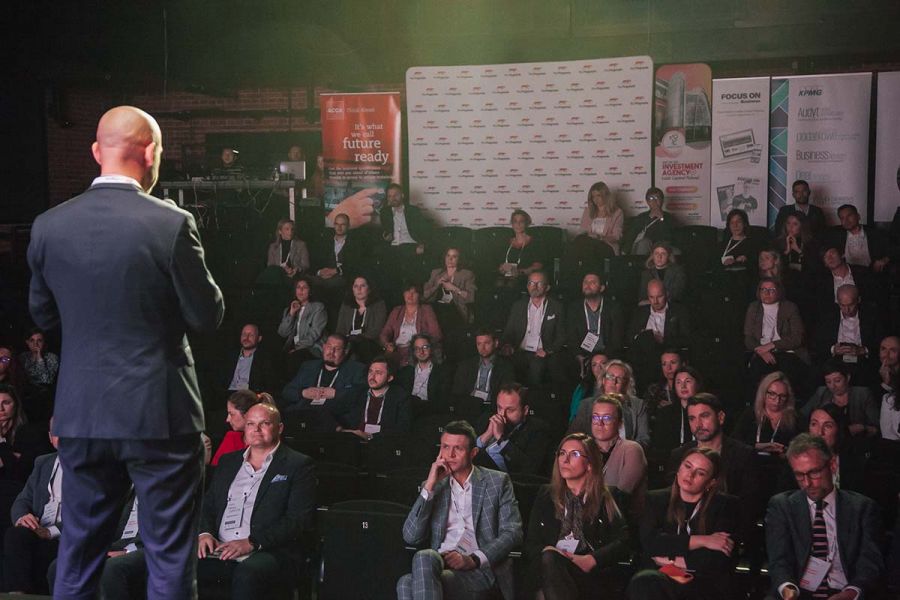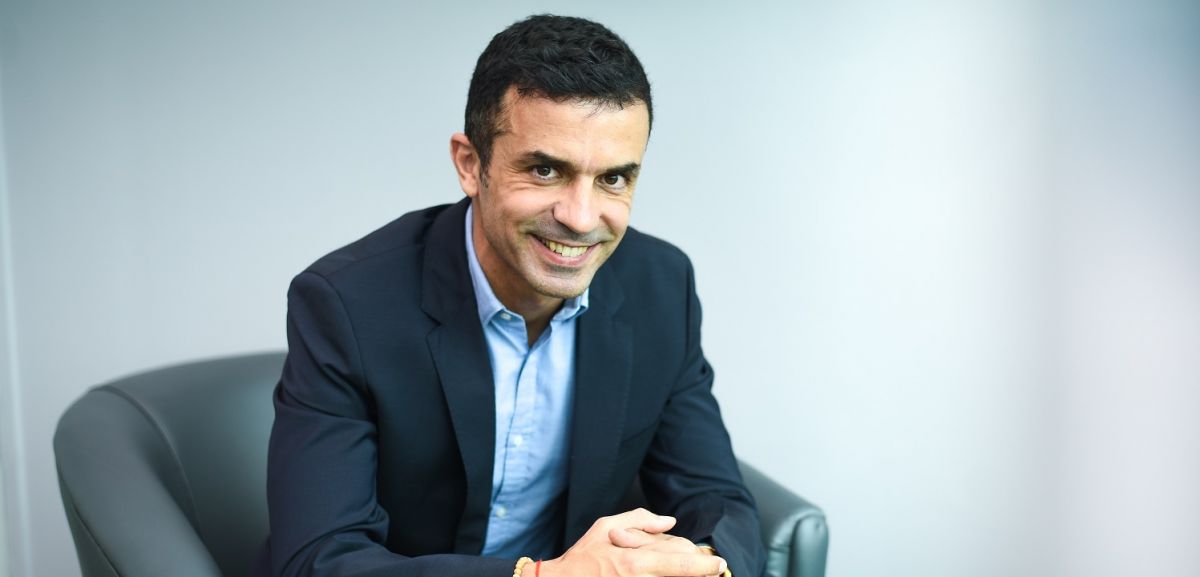The future is flexible - defining the new era of work

As many parts of the world gradually emerge from the acute phase of the COVID-19 pandemic, it is becoming clear that the world of work and employment markets have been profoundly altered.
Within this shifting environment, many opportunities have been revealed or accelerated. As organisations plan for their future beyond COVID-19, assessing altered working patterns, brought about by enforced lockdowns in countries around the world, can inform their approach to workplace optimisation. Those who embrace the transformation opportunity will position themselves ahead of the curve. To do so, organisations must now navigate this unchartered territory and the new set of employee expectations that have arisen, defining the new working parameters for a new era of work.
THE CHALLENGE TO CHANGE
Whilst many businesses across the globe have proven themselves to be responsive, resilient, and resourceful under such unique circumstances, the bigger challenge they now face is establishing new working norms, informed by their learnings from the pandemic experience. The focus thus far has been on keeping their own business operations afloat; the next obstacle to overcome is enabling their own workforce, and wider society, to thrive in the new era of work.
In a global study by The Adecco Group as much as 80% of employees said their employer is ‘responsible’ for ensuring a better working world after the pandemic. Meanwhile, 73% said the government is responsible, and 72% of the employees said that they themselves were responsible. As such, the gauntlet is being laid down to all parties who have the power to deliver change, but the overwhelming consensus is that employers are the most trusted to drive this forward.
Employers have earned employee trust during the pandemic. Companies are now the most trusted to “reset normal” – more than any other institution.
In the case of companies, to meet the expectations placed on them to deliver, it will require a new breed of leader and approach that can and will prioritise the emerging trends that have been accelerated by the pandemic – specifically around flexibility, workplace policies and addressing skills gaps. This is a key moment in time that we have never seen before. Business leaders have been given an unprecedented opportunity to hit reset on pre-pandemic working norms and shape the future of work in a way that allows the workforce and businesses to thrive. Those who do not embrace these challenges risk being left behind. This presents a rare and unique opportunity for businesses to re think their operating models and pivot toward working styles that will benefit both management and employees long-term. One element worth looking at is flexibility.
THE FUTURE IS FLEXIBLE
While flexible working was already on the rise, the pandemic lockdown propelled this once ‘emerging trend’ forward, and one of the biggest verifications from the research is that flexible working is here to stay. This is not just a measure of necessity in times of forced lockdown – but a desired practice to be embraced sustainably for the future. Both business leaders and workers at large agree that greater flexibility enhances not only employee work-life balance, but overall business performance.
So, what does this new model of flexibility look like? In an ideal paradigm, employees want a balance of office and remote work, and to have their work environments and hours accommodate their personal circumstances. They appreciate the value of working remotely where they can concentrate on “deep thought” work and avoid lost time commuting, and they still see the benefit of spending time in a shared office environment where teams can collaborate face to face, inspire each other, and foster a shared workplace culture.
That’s why three quarters of workers say that a mix of office-based and remote working is the best way forward. And although employees expect their employers to force them to spend more than two thirds of their time in the office in future, they would ideally prefer to only spend half of their time there, with the balance spent working remotely.
49% OF EMPLOYEES WANT TO SPEND AROUND HALF THEIR WORKING WEEK REMOTELY
And it’s not only employees who see the benefits. Almost eight in 10 C-level managers believe that business will generally benefit from allowing increased flexibility around office and remote working. Also executive management see that employees will personally benefit from having increased flexibility around office and remote working.
Additionally, eight in 10 workers said it is important to be able to maintain a good work/life balance after the pandemic, and half of workers said that their work/life balance has improved during the lockdown. There is universal approval of flexible working, across business structures and geographies, across generations and parental status. It is a clear affirmation that the world is ready for ‘hybrid working’.
IS THIS THE END OF THE 9–5?
The work that we do is changing, the working environments we inhabit are changing, and there is also a rising call to rethink how roles are commissioned, and how productivity is assessed.
During the pandemic, individual autonomy over work schedules tripled! The value of this autonomy is also something that workers are keen to retain in future with three quarters saying it is important to maintain flexibility over their working schedules.
Closely linked to this, we see an emerging view that employee contracts should evolve to focus more on meeting the needs of the business than on set hours. This view is currently shared by over two thirds of workers and is likely to remain and potentially grow in influence. A similar majority also feel that employers should revisit the length of the working week and the hours that employees are expected to work.
Within this scenario, key performance indicators related to output and impact would be the main metric by which a knowledge-economy employee is measured, as opposed to how long they have worked. Employees would have flexibility in framing their hours and working style, so long as they complete the tasks they are contracted to do and deliver the results expected of them. This would be a significant departure from what was once the norm for many businesses, where “time at desk” was considered important in assessing whether an individual employee was a productive and contributing team member.
For the model to be a success, the high levels of trust that have been established between employees and employers during the pandemic must continue. In fact, over three quarters of employees say that feeling trusted to get the job done will be important after the pandemic.
These perspectives illustrate that that there will not be a return to the ‘normal’ that we experienced in times past. The workplace is a fluid concept and for the first time en masse, we are no longer seeing it as a physical space. To not be left behind, organisations will need to alter the lens through which they view their workers, the jobs they do, and the conditions in which they do them.
KEY TAKEAWAYS
- It is clear that there will be more flexibility in our future, but the question of how this is sustained in the longer term beyond the pandemic remains a key challenge for businesses.
- With all workplace parties calling for greater flexibility, it is imperative that everyone is involved in aligning on the optimal model. Listening to employees to identify which elements of flexible working have worked well and where there remains room for improvement, is the first step to establishing the new norm.
- To ensure success, leaders must consider the shifts that need to be made in working styles, communication rhythm and team organisation when adopting a hybrid working model, and avoid simply applying the structures of the past.
- With the preference being an even split between office and remote working, leaders will need to consider the functionality and purpose of the office and how the shared work space can bring the most value to a workforce that can and will work anywhere in the world.
- As flexibility increases and employees gain greater control over working schedules, they will also look to gain greater autonomy over how to manage working time.
- As the importance of knowledge-based work increases, the practice of compensating an employee based on a fixed set of hours during a certain time of the day, rather than results delivered, will no longer stand as reference for a working relationship.
- Historically, for many jobs, wages have been calculated on the basis of attendance rather than impact. Going forward, the concept of correlating output with hours will be outdated. Many individuals work at a different pace to each other, and work volumes are often not linear.
- Redefining the measurement of productivity is complex and goes to the heart of Industrial Relations and Labour Legislation. An individualised approach must be considered going forward. In an era of work vastly different from the one based on an industrial 9–5 scheme, it is inevitable that the hours based model of productivity measurement will be revisited.
PREPARING FOR TOMORROW
The world of work will never return to the ‘normal’ that we were familiar with before the pandemic struck, and it is clear that the prior version of ‘normal’ did not work well for a lot of labour market participants.
However, the shift towards flexibility, lifelong learning and multi-dimensional leadership will never be fully realised unless enabling structural changes are made. The current system is failing to meet the demands for specialist skilled workers in growing sectors, mental health issues at work are on the rise, and an increasing number of workers are struggling to juggle the competing demands of a busy personal life and a satisfying and successful career. It is therefore vital that employees, employers, and policymakers share the responsibility of shaping a new working model. And we have a rare window to do so.
Arguably, the COVID-19 pandemic has changed the world of work more radically than any other single event in our working lifetime. Defining how we use this opportunity to reset and transform our workplaces is now in the hands of all labour market participants. The decisions made by employers today will influence their status as an employer of choice for many years to come. The war for talent will be won and lost on the battlegrounds of flexibility, skills investment, leadership and trust. The organisations that are able to “reset normal” will not only secure the best talent, but will also be the most effective in managing their human capital to create sustainable success for their organisations, for the individuals they employ, and for society at large.
Authors: the Adecco Group experts

Outsourcing&More







